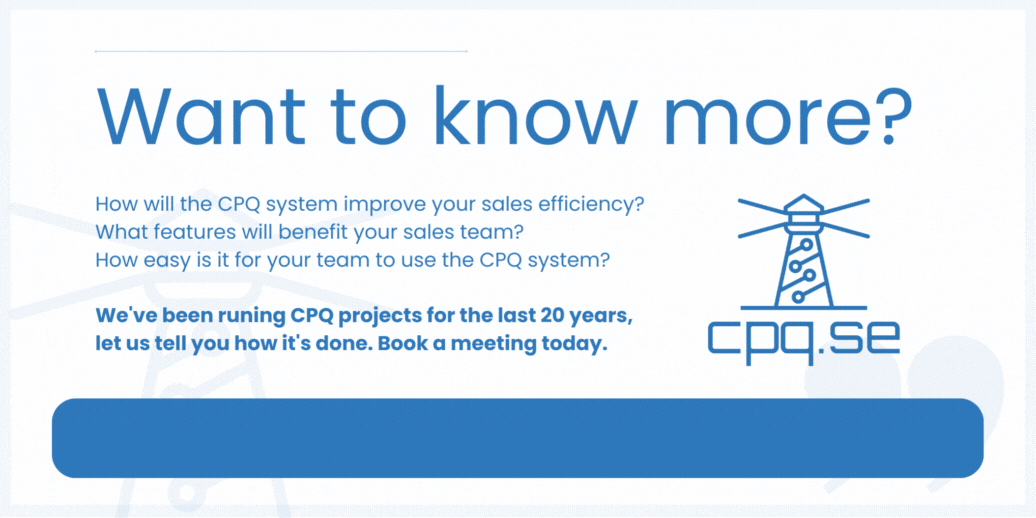In our unfolding saga of Sarah, The Sales Profet, we now turn our focus to a cornerstone of the CPQ...
8 KPIs for CPQ
KPI, or Key Performance Indicator, is a metric that is used to evaluate the performance of a system or process. The specific KPIs that are most relevant for a CPQ (Configure, Price, Quote) system will depend on the goals and objectives of the business that is using the system. However, some common KPIs for a CPQ system may include the following:
-
Sales conversion rate: This is the percentage of leads or inquiries that are converted into actual sales. A high conversion rate indicates that the CPQ system is effectively helping sales teams to generate quotes and close deals.
-
Quoting accuracy: This is the degree to which the quotes generated by the CPQ system match the actual prices of the products or services being offered. A high level of quoting accuracy ensures that sales teams are able to provide accurate and competitive pricing to customers.
-
Time to quote: This is the amount of time it takes for a sales team to generate a quote using the CPQ system. A shorter time to quote can help sales teams to respond quickly to customer inquiries and close deals more efficiently.
-
Average deal size: This is the average amount of revenue generated per sales transaction. A higher average deal size can indicate that the CPQ system is helping sales teams to upsell or cross-sell products and services, resulting in larger and more profitable deals.
-
Customer satisfaction: This is a measure of how satisfied customers are with the overall experience of interacting with the CPQ system. A high level of customer satisfaction can indicate that the system is easy to use and provides value to customers.
-
User adoption: This is the percentage of sales team members who are actively using the CPQ system on a regular basis. A high level of user adoption can indicate that the system is user-friendly and provides value to sales teams.
-
Cost savings: This is the amount of money that the company is able to save by using the CPQ system to automate and streamline the quoting process. A higher level of cost savings can indicate that the system is providing value to the business.
-
Revenue growth: This is the increase in revenue generated by the business over a specific period of time. A high rate of revenue growth can indicate that the CPQ system is helping the business to generate more sales and increase profitability.
Overall, these KPIs are important because they provide insights into how well the CPQ system is helping the business to achieve its goals and objectives. By tracking and analyzing these metrics, businesses can identify areas for improvement and make adjustments to the system to maximize its effectiveness.




